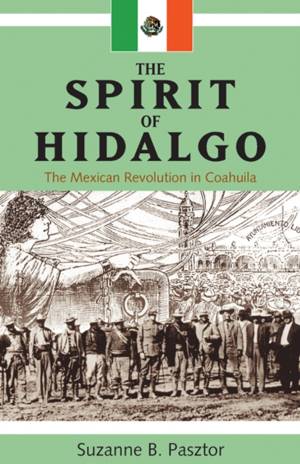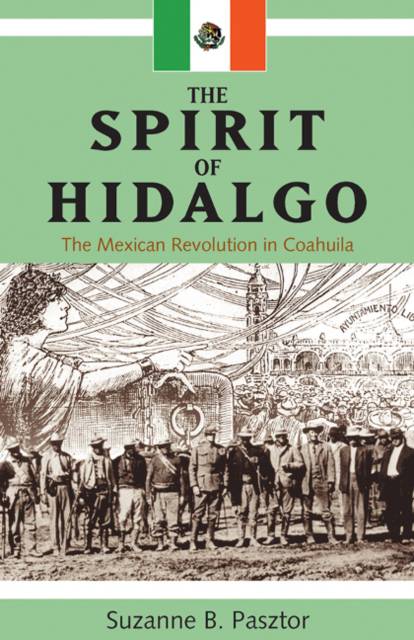
Door een staking bij bpost kan je online bestelling op dit moment iets langer onderweg zijn dan voorzien. Dringend iets nodig? Onze winkels ontvangen jou met open armen!
- Afhalen na 1 uur in een winkel met voorraad
- Gratis thuislevering in België vanaf € 30
- Ruim aanbod met 7 miljoen producten
Door een staking bij bpost kan je online bestelling op dit moment iets langer onderweg zijn dan voorzien. Dringend iets nodig? Onze winkels ontvangen jou met open armen!
- Afhalen na 1 uur in een winkel met voorraad
- Gratis thuislevering in België vanaf € 30
- Ruim aanbod met 7 miljoen producten
Zoeken
Omschrijving
The Spirit of Hidalgo: The Mexican Revolution in Coahuila fills a significant gap in the scholarship of the Mexican revolution by providing a detailed history of the northeastern state of Coahuila from the late Portifirian era to approximately 1920. It evaluates social, political, and economic developments that contributed to revolutionary activity within Coahuila and helped to shape the movements led by Francisco I. Madero and Venustiano Carranza. The Spirit of Hidalgo: The Mexican Revolution in Coahuila also examines the social bases and characteristics of support for Madero, Carranza, and other revolutionary factions. Pasztor also explores the role played by the extensive Coahuila-Texas border in financing the Mexican revolution. Finally, the immediate outcomes of the revolution are addressed through a study of the reforms introduced during the governorships of Carranza and Gustavo Espinosa Mireles.
Specificaties
Betrokkenen
- Auteur(s):
- Uitgeverij:
Inhoud
- Aantal bladzijden:
- 240
- Taal:
- Engels
- Reeks:
- Reeksnummer:
- nr. 2
Eigenschappen
- Productcode (EAN):
- 9781552380475
- Verschijningsdatum:
- 30/09/2002
- Uitvoering:
- Hardcover
- Formaat:
- Genaaid
- Afmetingen:
- 140 mm x 216 mm
- Gewicht:
- 426 g

Alleen bij Standaard Boekhandel
+ 152 punten op je klantenkaart van Standaard Boekhandel
Beoordelingen
We publiceren alleen reviews die voldoen aan de voorwaarden voor reviews. Bekijk onze voorwaarden voor reviews.











